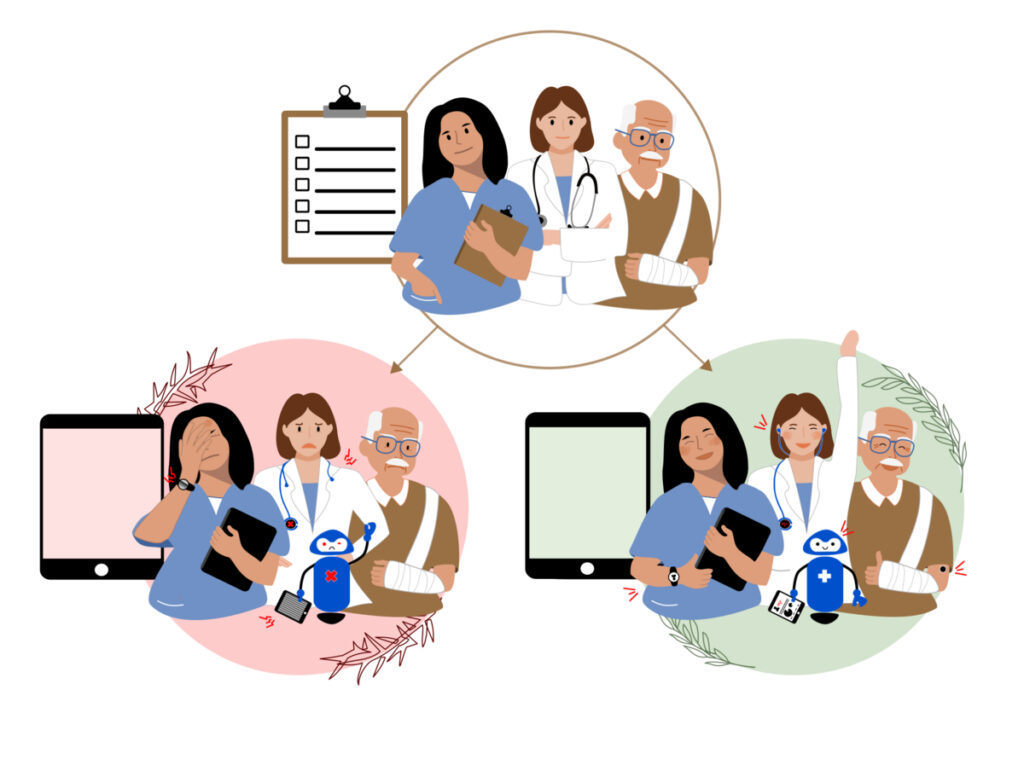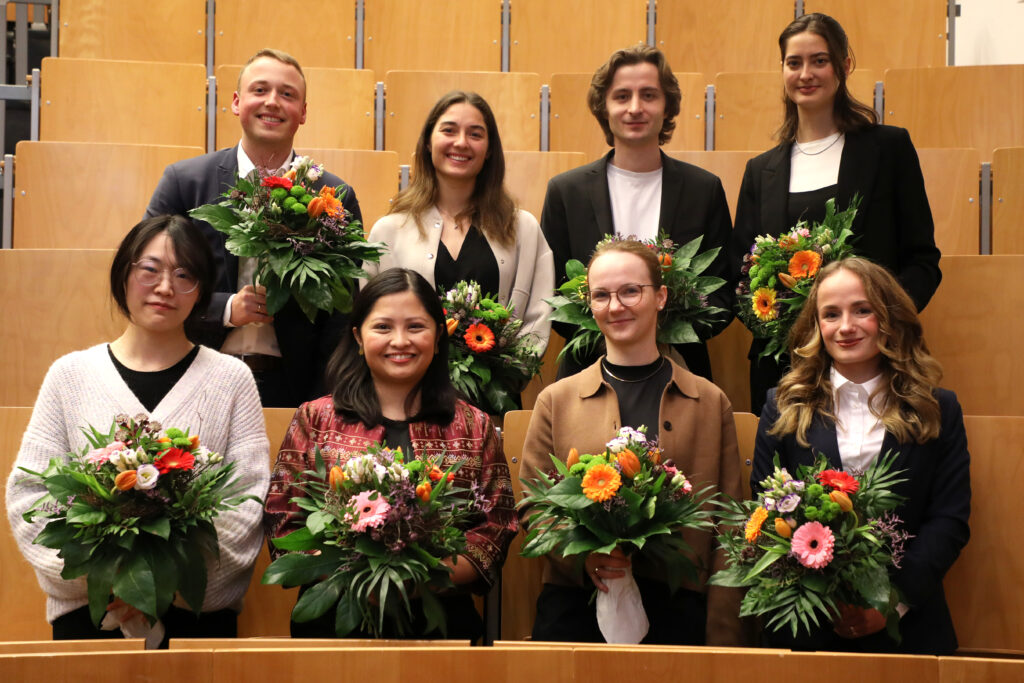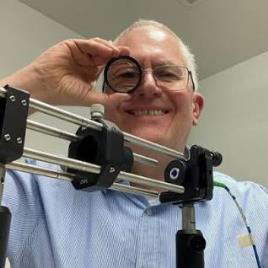The Use of AI in Hepatology
Expert Recommendations for
A group of 34 international leading experts in hepatology, data science, and artificial intelligence (AI) has released a consensus report presenting concrete recommendations for the clinical application of AI in hepatology. They are the result of a structured, multi-step, anonymized process led by Prof. Jakob N. Kather, Else Kröner Fresenius Center (EKFZ) for Digital Health, TU Dresden and University Hospital Dresden, together with Dr. Sabela Lens (University Hospital Barcelona/Spain) and Dr. Eric Trépo (University Hospital Brussels/Belgium). The paper was published by the European Association for the Study of the Liver (EASL) and its AI Task Force in the Journal of Hepatology.
Jan Clusmann, Maria Balaguer-Montero, Octavi Bassegoda, Carolin V. Schneider, Tobias Seraphin, Ellis Paintsil, Tom Luedde, Raquel Perez Lopez, Julien Calderaro, Stephen Gilbert, Thomas Marjot, Ashley Spann, Debbie L. Shawcross, Sabela Lens, Eric Trépo, Jakob Nikolas Kather: The barriers for uptake of artificial intelligence in hepatology and how to overcome them; Journal of Hepatology, July 2025.
Progress and challenges in the use of AI
AI systems have rapidly evolved over the past 15 years, with major advances particularly in image-based applications in radiology and pathology – and more recently, also in language-based methods. Despite this progress, clinical use of AI remains limited due to numerous implementation challenges. To better understand these barriers and support the integration of AI tools into hepatology, the EASL AI Task Force conducted a structured consensus process involving expert hepatologists and data scientists, as well as clinical AI and regulatory sciences experts. They based it on the Delphi method – a systematic, iterative, anonymized survey procedure widely used in medicine to develop guidelines. It ensures that resulting recommendations reflect broad expert consensus. Dr. Jan Clusmann, first author of the publication and postdoctoral researcher in the “Clinical Artificial Intelligence” group led by Prof. Jakob N. Kather at the EKFZ for Digital Health at TU Dresden, coordinated the entire process and compiled the results.

Jakob N. Kather
AI has the potential to transform the care and study of liver diseases. However, we are still facing significant implementation barriers. Our publication aims to provide clear guidance on how to overcome these and move toward routine clinical use of AI-based systems.”
AI literacy as a key to implementation
A central recommendation of the group is to build AI literacy among healthcare professionals. The expert panel further advocates that AI systems must demonstrate efficacy, reliability, and trustworthiness before they can be adopted into clinical practice. Even validated tools often face practical barriers due to heterogenous infrastructure across healthcare systems and limited interoperability of hospital IT systems. Addressing these implementation challenges is crucial to enabling routine use.
Conducting AI-supported clinical trials and facilitating data exchange
The experts also highlight the importance of investigating AI methods in clinical trials. This requires seamless information exchange between institutions, decentralized access to de-identified data, and early collaboration between AI researchers and clinical trial investigators
Promoting interdisciplinary collaboration and creating structured frameworks
Professional societies can help, for example by establishing targeted initiatives and structured frameworks to support AI implementation. Future clinical guidelines, coordinated by these societies, should explicitly discuss recommendations of AI models. Those guidelines should further serve as prioritized clinical context for AI-based decision support systems.
Patient journey through AI-enabled hepatology care
Example flowchart for how a patient can benefit from AI at every step of the patient journey from support at home, admission to discharge.
Throughout this journey, future clinicians will supervise the available tools in cooperation with a co-intelligent self-operating agent that reports to the clinician and underlies his or her complete control.
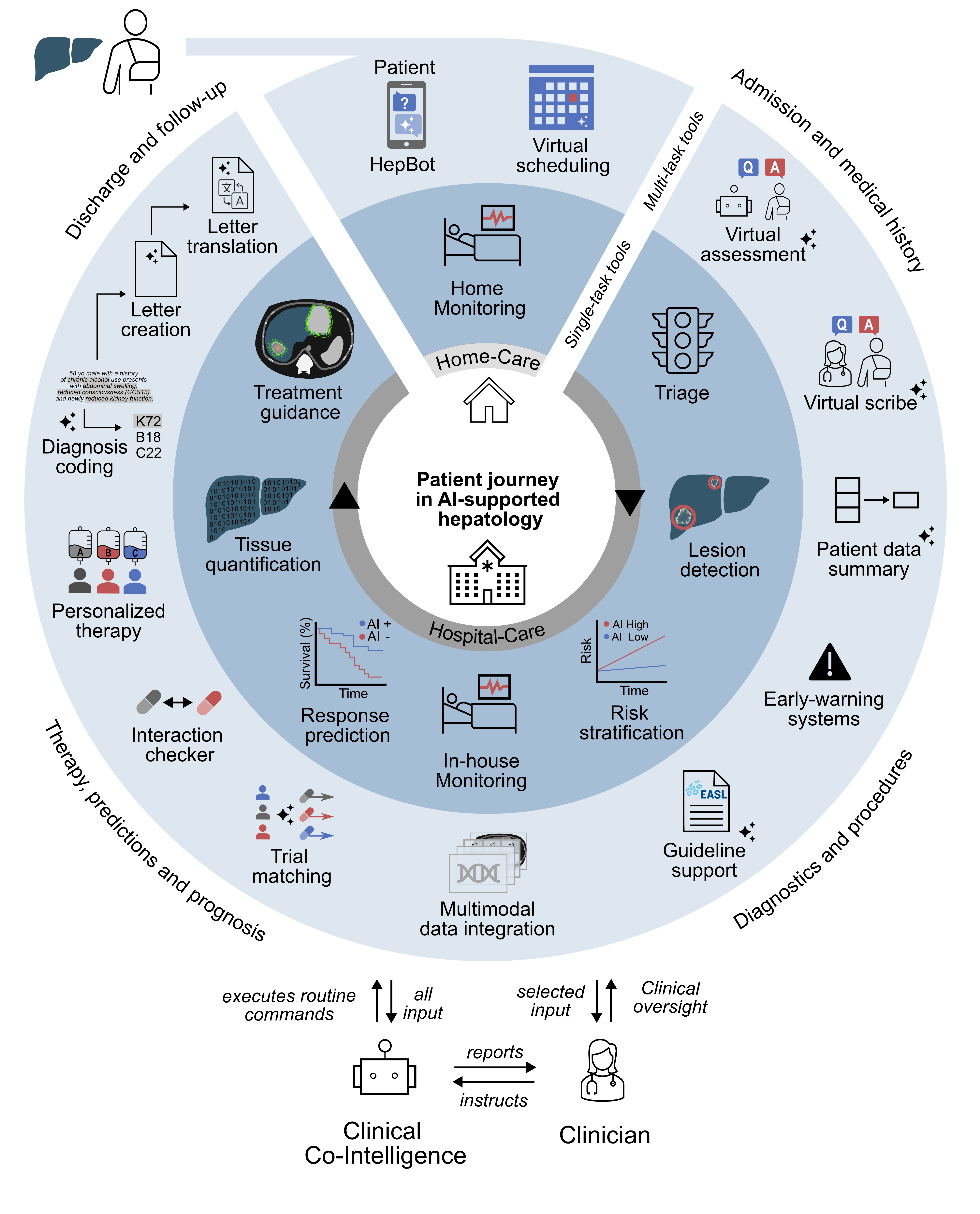
Jan Clusmann
What is unique about this publication is the international, interdisciplinary consensus – the result of close collaboration between experts from different countries and disciplines. This common basis can help us to translate pioneering AI technologies from the lab into clinical practice. We illustrate this roadmap for hepatology, but our goal was to develop a scalable blueprint also for other areas of medicine as they face similar challenges.”
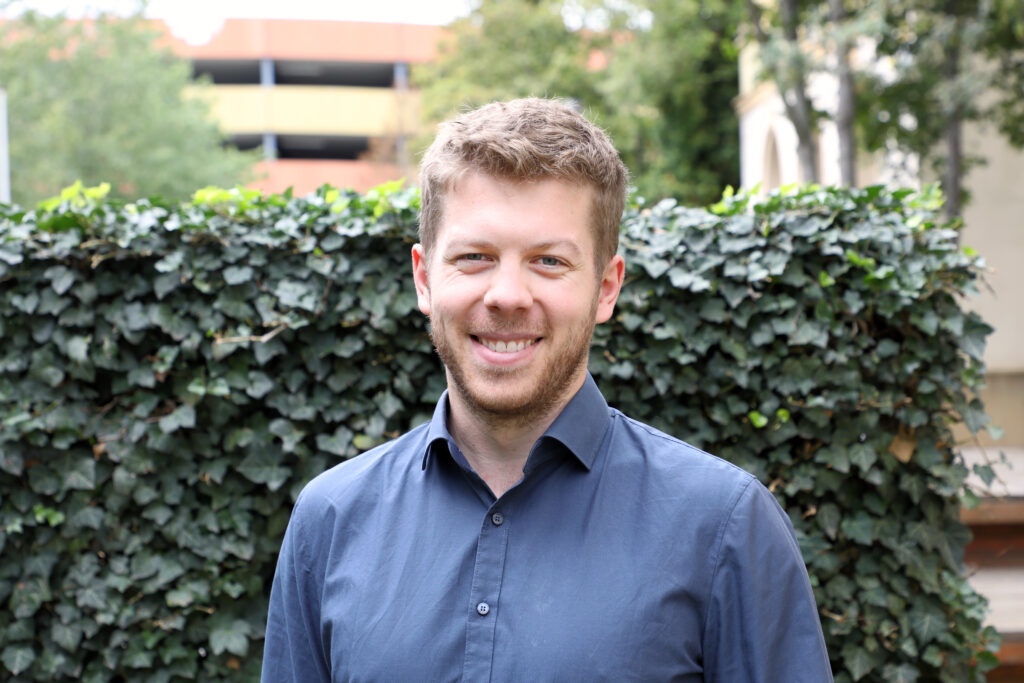
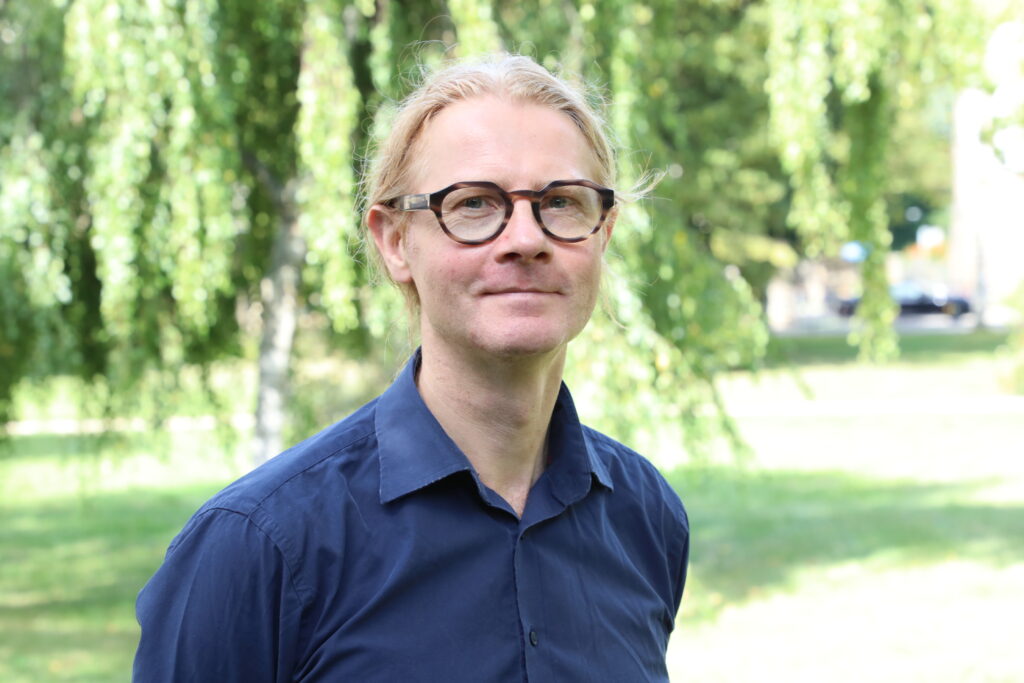
Stephen Gilbert
The EU has outlined an ambitious regulatory vision to lead the way in the safe and ethical oversight of AI in medicine. This requires bold, well-funded strategies that support controlled studies and encourage innovation. With the right support, environments like Living Labs can bridge the gap between regulation and innovation – ensuring that digital health solutions evolve in ways that are meaningful, ethical, and ultimately beneficial to patients and healthcare systems.
The position paper “The barriers for uptake of artificial intelligence in hepatology and how to overcome them,” is published in the Journal of Hepatology, the official journal of the European Association for the Study of the Liver (EASL).
About the EASL AI Task Force
The EASL AI Task Force is a group of experts established by the European Association for the Study of the Liver (EASL) to guide the responsible and effective use of artificial intelligence in hepatology. Their goal is to harness AI to improve research, education, clinical decision-making, and patient care related to liver diseases. They also advise on AI integration for EASL events and publications as well as fostering strategic partnerships to drive AI advancements relevant to liver diseases and supporting operational tasks at EASL. Further information and list of members: https://easl.eu/easl/leadership-and-governance/ai-task-force/
More News
Carl Gustav Carus Awards for three EKFZ affiliated young researchers
Virtual companions, real responsibility


